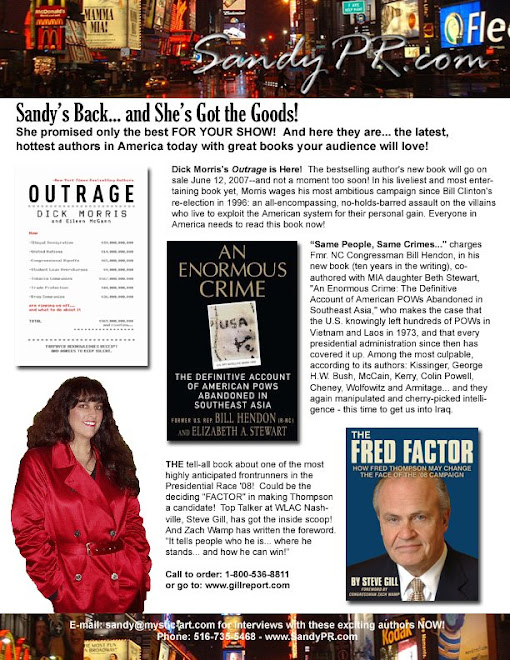A World War II Story of
Espionage, Adventure, and
Betrayal
By
Howard Blum
New York Times Bestselling author of Dark
Invasion
Film rights already optioned by Columbia Pictures, The Last Goodnight: A World War II Story of Espionage, Adventure, and Betrayal is Vanity Fair contributing editor and New York Times bestselling author Howard Blum's latest work - an international political WWII biography. Already a political and social science bestseller, The Last Goodnight is the story of international spy, Betty Pack who paved the way for women who now have an increasing role in the CIA. |
| Betty Pack was an American debutante who parlayed her charm, intelligence, and sexual largesse into an impressive career as a spy. In The Last Goodnight, Blum tells the all-but-forgotten story of this "Mata Hari from Minnesota" (Time), whose bravery, sense of adventure-and often fluid morality-knew few bounds. Drawing on a trove of previously untapped papers-including Betty's own dictated testimony-Blum gives us a riveting account of the double life and clandestine work of a woman who OSS chief general "Wild Bill" Donovan called "the greatest unsung heroine" of WWII. |
Blum shapes the narrative around Betty's last hurrah-her
1963 reconnection with a wartime colleague Harford Montgomery Hyde, who would
become her biographer and, inevitably, her lover. Betty knew she was dying, but
yearned to escape the boredom of a second marriage lived out in near isolation
in the Pyrenees. Working with Hyde allowed her to recall her glory days, which
play out beyond the imaginings of even the finest espionage thriller
writer.
Using the code name "Cynthia," Betty would
become a major intelligence asset. She thought nothing of seducing men of
influence and power to gain access to codes, ciphers, and secrets. She obtained
Polish notebooks that proved key to Alan Turing's success deciphering the
"unbreakable" messages sent by Germany's Enigma machines, secured Italian naval
ciphers (by seducing an Italian Naval attache) that helped the Royal Navy
triumph over Mussolini's forces at sea, and snuck into the French Embassy in
Washington to break into a safe and
photograph Vichy naval codes.
In an interview Howard Blum can discuss:
In the
wake of the Brussels and other recent terror attacks, our government is
realizing the need for the nation to rely once again on individual secret agents
(human intelligence) rather than electronic means to get intelligence even in
this modern age of terror. We need, the CIA is now saying, to be able to do what
we did in the past - to infiltrate covert operators into the enemy camp, and
Betty Pack is a prime (and extraordinary) example of how successful a single
operative can be.
|
"A dazzling masterwork of narrative nonfiction. Howard Blum has vividly captured the extraordinary life of a passionate, complicated, thoroughly modern woman who did nothing less than help win World War II."
--Mitchell Zuckoff, New York Times bestselling author
About the Author: Howard Blum is the author of New York Times bestsellers including Dark Invasion, the Edgar Award - winner American Lightning, as well as Wanted!, The Gold Exodus, Gangland, and The Floor of Heaven. Blum is a contributing editor at Vanity Fair. While at the New York Times, he was twice nominated for a Pulitzer Prize for investigative reporting.
|






No comments:
Post a Comment